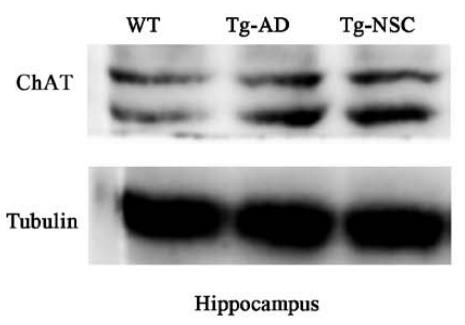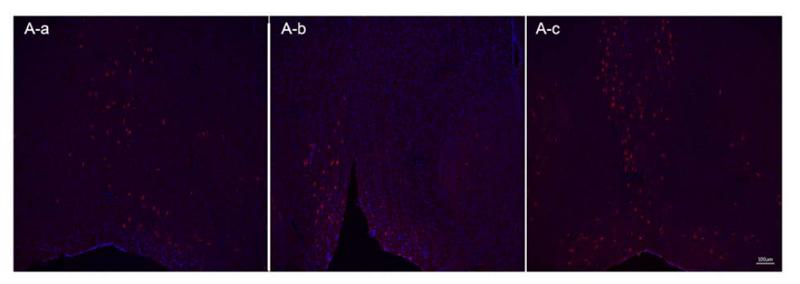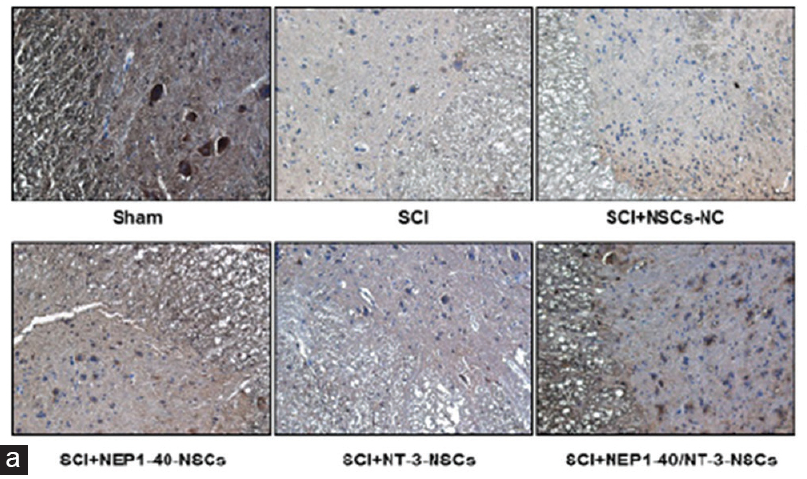Choline Acetyltransferase Antibody - #DF6964
| Product: | Choline Acetyltransferase Antibody |
| Catalog: | DF6964 |
| Description: | Rabbit polyclonal antibody to Choline Acetyltransferase |
| Application: | WB IHC |
| Cited expt.: | WB, IHC |
| Reactivity: | Human, Mouse, Rat |
| Mol.Wt.: | 82kDa; 83kD(Calculated). |
| Uniprot: | P28329 |
| RRID: | AB_2838920 |
Related Downloads
Protocols
Product Info
*The optimal dilutions should be determined by the end user. For optimal experimental results, antibody reuse is not recommended.
*Tips:
WB: For western blot detection of denatured protein samples. IHC: For immunohistochemical detection of paraffin sections (IHC-p) or frozen sections (IHC-f) of tissue samples. IF/ICC: For immunofluorescence detection of cell samples. ELISA(peptide): For ELISA detection of antigenic peptide.
Cite Format: Affinity Biosciences Cat# DF6964, RRID:AB_2838920.
Fold/Unfold
Acetyl CoA choline O acetyltransferase; Acetyl CoA:choline O acetyltransferase; ChAT; CHOACTase; Choline acetylase; choline acetyltransferase; Choline O acetyltransferase; Choline O-acetyltransferase; CLAT_HUMAN; CMS1A; CMS1A2; EC 2.3.1.6; OTTHUMP00000019583; OTTHUMP00000019584;
Immunogens
A synthesized peptide derived from human Choline Acetyltransferase, corresponding to a region within C-terminal amino acids.
- P28329 CLAT_HUMAN:
- Protein BLAST With
- NCBI/
- ExPASy/
- Uniprot
MGLRTAKKRGLGGGGKWKREEGGGTRGRREVRPACFLQSGGRGDPGDVGGPAGNPGCSPHPRAATRPPPLPAHTPAHTPEWCGAASAEAAEPRRAGPHLCIPAPGLTKTPILEKVPRKMAAKTPSSEESGLPKLPVPPLQQTLATYLQCMRHLVSEEQFRKSQAIVQQFGAPGGLGETLQQKLLERQEKTANWVSEYWLNDMYLNNRLALPVNSSPAVIFARQHFPGTDDQLRFAASLISGVLSYKALLDSHSIPTDCAKGQLSGQPLCMKQYYGLFSSYRLPGHTQDTLVAQNSSIMPEPEHVIVACCNQFFVLDVVINFRRLSEGDLFTQLRKIVKMASNEDERLPPIGLLTSDGRSEWAEARTVLVKDSTNRDSLDMIERCICLVCLDAPGGVELSDTHRALQLLHGGGYSKNGANRWYDKSLQFVVGRDGTCGVVCEHSPFDGIVLVQCTEHLLKHVTQSSRKLIRADSVSELPAPRRLRWKCSPEIQGHLASSAEKLQRIVKNLDFIVYKFDNYGKTFIKKQKCSPDAFIQVALQLAFYRLHRRLVPTYESASIRRFQEGRVDNIRSATPEALAFVRAVTDHKAAVPASEKLLLLKDAIRAQTAYTVMAITGMAIDNHLLALRELARAMCKELPEMFMDETYLMSNRFVLSTSQVPTTTEMFCCYGPVVPNGYGACYNPQPETILFCISSFHSCKETSSSKFAKAVEESLIDMRDLCSLLPPTESKPLATKEKATRPSQGHQP
Research Backgrounds
Catalyzes the reversible synthesis of acetylcholine (ACh) from acetyl CoA and choline at cholinergic synapses.
Belongs to the carnitine/choline acetyltransferase family.
Research Fields
· Metabolism > Lipid metabolism > Glycerophospholipid metabolism.
· Organismal Systems > Nervous system > Cholinergic synapse.
References
Application: WB Species: mouse Sample: basal forebrain and hippocampus
Application: IF/ICC Species: mouse Sample: basal forebrain
Application: IHC Species: Rat Sample:
Restrictive clause
Affinity Biosciences tests all products strictly. Citations are provided as a resource for additional applications that have not been validated by Affinity Biosciences. Please choose the appropriate format for each application and consult Materials and Methods sections for additional details about the use of any product in these publications.
For Research Use Only.
Not for use in diagnostic or therapeutic procedures. Not for resale. Not for distribution without written consent. Affinity Biosciences will not be held responsible for patent infringement or other violations that may occur with the use of our products. Affinity Biosciences, Affinity Biosciences Logo and all other trademarks are the property of Affinity Biosciences LTD.








